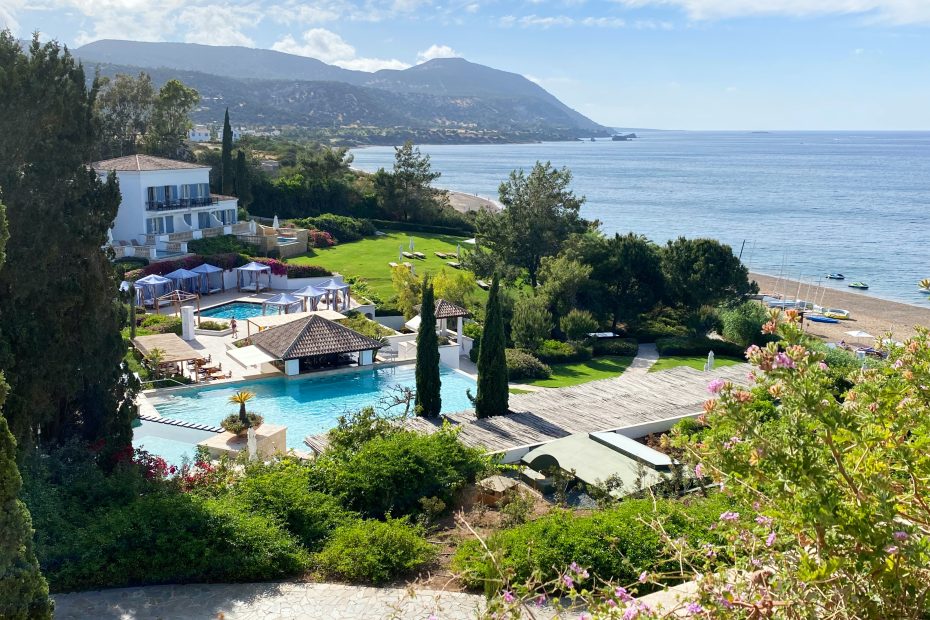Table of Contents
Introduction
Cyprus is a Mediterranean island nation with a rich cultural heritage spanning thousands of years. A strategic location in the eastern Mediterranean positioned it at the crossroads of Europe, Asia, and Africa, resulting in an intricate fusion of diverse influences. The island’s traditions, festivals, language, cuisine, music and religious celebrations offer visitors a window into its storied past and vibrant culture.
Traditional Crafts
Centuries-old crafts are still practiced across Cyprus today, preserving ancient artistic traditions. Pottery makingdates back to the Bronze Age, with distinctive Cyprus Plainware produced as early as 2500 BCE. In rural villages, artisans craft ceramics including jars, bowls, and ornaments using techniques unchanged for generations. Lace making, especially Lefkaritika lace with intricate patterns, has been a tradition since the 16th century. Basket weaving with local reeds and rushes is also a well-preserved folk art.
Cuisine
Cypriot cuisine reflects the island’s location and waves of foreign influence. Halloumi cheese, salty and robust, has been produced for centuries from sheep and goat milk. Grilled souvla skewers of meat and vegetables are popular fare. Meze dips like hummus, tzatziki, and taramasalata are served with every meal. Herbs like oregano and spices like cumin add unique flavors. Sweet desserts like lokma pastries and preserved fruits in syrup also have Ottoman origins.
Music and Dance
Folk music and dance are essential parts of Cypriot culture. Traditional folk songs and dances like sousta exhibit strong Greek and Middle Eastern influences. Other instruments like the violin and lute create upbeat rhythms and emotional tones. Familiar dances like the kalamatianos circle dance or karsilamas partner dance are commonly performed, particularly during holidays and festivals.
Religious Festivals
Cyprus is predominantly Greek Orthodox Christian, with a Muslim minority. Greek Orthodox Easter celebrates Jesus’ resurrection with solemn church services, candlelight processions, feasts, and family gatherings. Ramadan brings daytime fasting and evening celebrations in Muslim communities. Christmas is also celebrated exuberantly across the island, regardless of denomination.
Secular Festivals
Colorful secular festivals infuse creativity and merriment into Cypriot culture. Carnival inspires costumes, parades, music and street parties before Lent. The Anthestiria Flower Festival marks the beginning of Spring. The annual Wine Festival offers food, drink, music, and dance to showcase local wines.
Museums and Historic Sites
Museums and UNESCO World Heritage Sites allow deeper insight into Cyprus’ heritage. The Cyprus Museum houses artifacts spanning the Neolithic Age to the Middle Ages. Choirokoitia’s Neolithic settlement offers an astounding look at 7000 BCE life. The ruins at Kourion date back to Greco-Roman rule. Numerous other sites provide windows into the past.
Language
Greek and Turkish are the primary languages in Cyprus, reflecting the island’s main ethnic groups. English is also widely spoken as a common language, leftover from British colonial rule. Most Cypriots speak both Greek and Turkish, enabling greater communication.
Conclusion
Cyprus offers much for visitors to experience – from ancient historic sites to colorful festivals to exquisite cuisine. Local traditions have remarkably endured conquering civilizations, preserving a distinctive cultural fusion. By celebrating its diverse heritage, Cyprus ensures these traditions withstand the tests of time and enrich future generations.
FAQs
What are some traditional crafts still practiced in Cyprus?
Some traditional Cypriot crafts are pottery making, lace making, and basket weaving using natural reeds and rushes. These folk arts date back centuries and are still practiced across the island.
What types of food and cuisine is Cyprus known for?
Halloumi cheese, souvla grilled skewers, meze appetizers, herbs like oregano, and desserts like lokma are part of Cypriot cuisine. The cuisine reflects foreign influences from the Mediterranean and Middle East.
What traditional music and dances are performed in Cyprus?
Folk music exhibits Greek and Middle Eastern influences. Traditional dances like the kalamatianos circle dance and karsilamas partner dance remain popular. Instruments like the violin and lute create the upbeat rhythms.
How do Cypriots celebrate religious holidays and festivals?
Greek Orthodox Easter and Christmas are big celebrations featuring church services, family meals, and traditions. Muslim Cypriots mark Ramadan with fasting and evenings filled with food and prayer.
What are some large secular festivals in Cyprus?
Major secular festivals include Carnival with costumes and parades, the Anthestiria Flower Festival celebrating Spring, and the annual Wine Festival showcasing Cypriot wines. These feature music, dance, food, and community.
